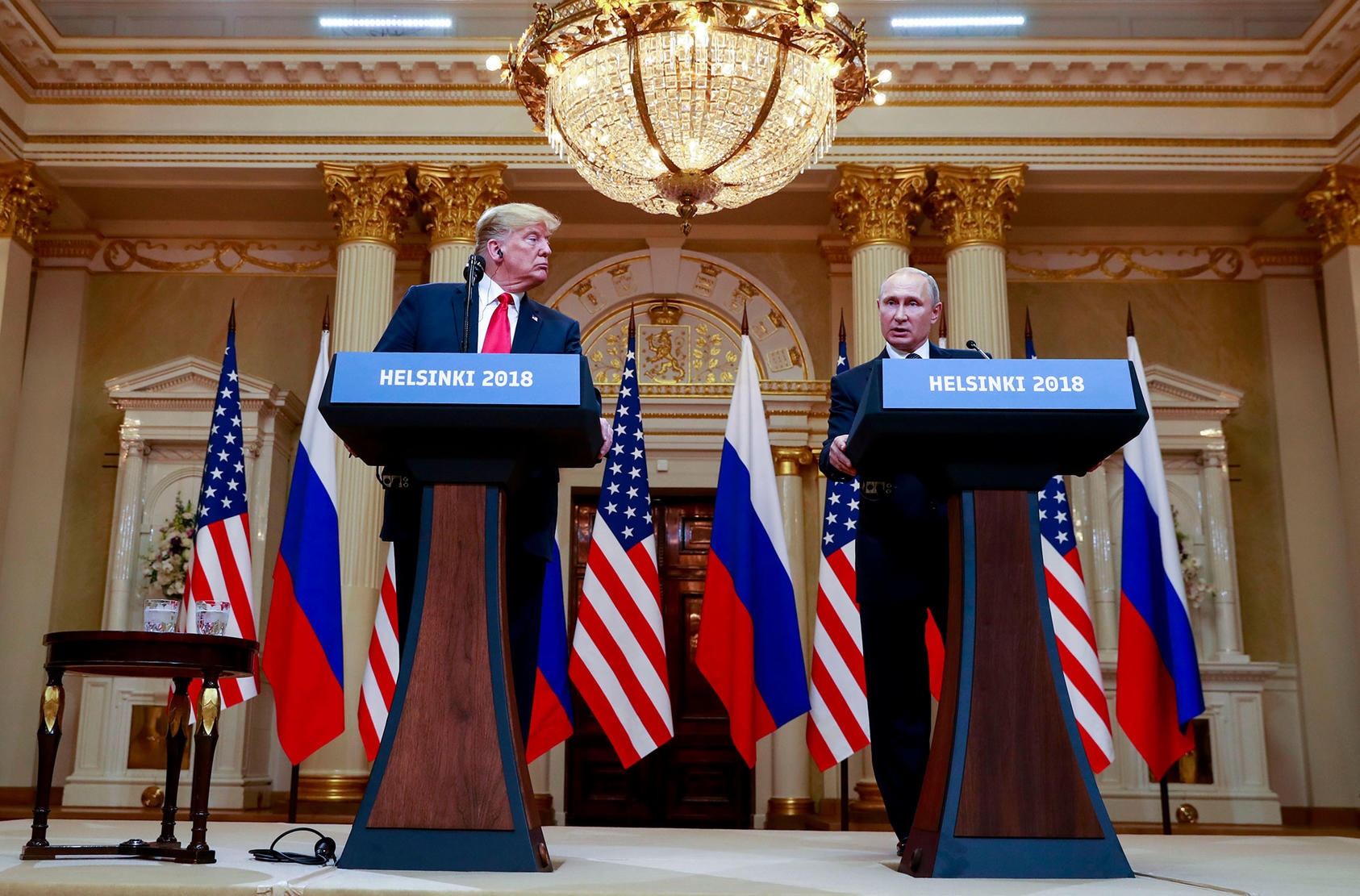What’s Next for the U.S. and Russia After the Trump-Putin Summit?
A resolution of the Ukraine crisis—leading to Russian withdrawal—remains central to improved U.S.-Russia relations
After a series of disquieting meetings with European and NATO allies last week, President Trump met with Russian leader Vladimir Putin in a bid to restore relations between Washington and Moscow. In the lead up to summit, President Trump sought to temper expectations, but repeatedly affirmed his longstanding belief that improved relations with Russia would be beneficial for U.S. interests. With so many high-stake issues for the two to discuss—ranging from Ukraine to Syria and arms control to Russian meddling in U.S. and European democratic processes—it remains to be seen if the summit will lead to further rapprochement. USIP’s Bill Taylor, a former ambassador to Ukraine, looks at the impact of the summit on U.S. relations with its European allies and why the Ukraine crisis must top the agenda of future negotiations.

What, if anything, concrete came from the summit? Can it serve as a starting point to enhance U.S.-Russian relations?
No concrete actions were planned or anticipated. Until Russia addresses and resolves the problem they created by invading Ukraine, U.S.-Russian relations will remain at a low point. Presumably this issue was discussed in the private meeting.
Both presidents expressed their belief that Russia and the U.S. would begin to restore relations and cooperate to solve global challenges, but didn't discuss specifics. Are there any areas of agreement the two countries can begin to work on?
If in private the presidents came up with a way for Russia to withdraw from Ukraine, then there is scope for a restoration of relations. There are arms control issues that are ripe for negotiation and resolution that are in both sides' interest.
Coming on the heels of the tense NATO summit, how will the Trump-Putin meeting impact U.S. relations with its European allies?
European allies made the point clearly that a unified alliance makes the United States stronger in Europe. Our allies will be eagerly anticipating the briefings that the United States always provides following these meetings.
With so much focus on Russian interference in the 2016 U.S. elections, what important issues did not receive appropriate attention?
Both sides would like to see relations improve, and both sides understand that resolution of the Ukraine problem is key to any improvement. I assume, therefore, that this issue was discussed in the private conversation and that the presidents will task their teams to begin serious negotiations to achieve that end.



